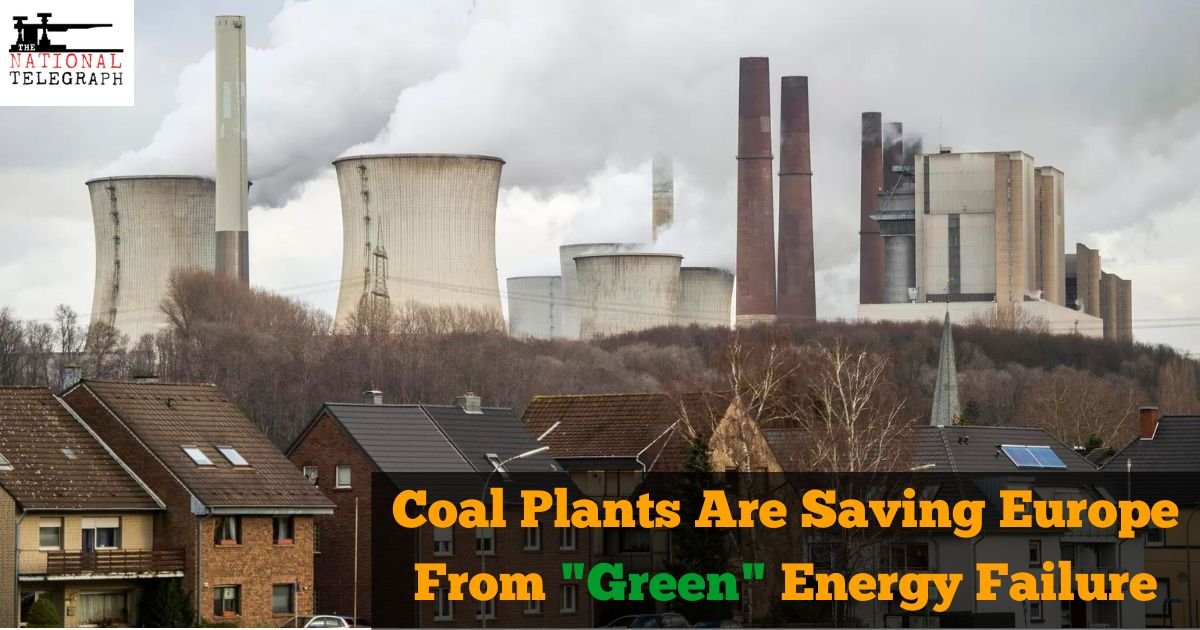Written By Neil McKenzie-Sutter, Posted on July 2, 2022

After several weeks of individual European countries expanding coal-based power generation due to Russia constricting O&G supplies due to the Ukraine conflict, esp. in the examples of Germany and Italy, etc, the Eurozone as a whole has had to pivot to coal as the energy source of choice for the near future.
Back on June 22nd, the IEA stated it was possible Russia would entirely cut off O&G supplies to Europe and the continent must plan for such a contingency. In response, while prominent EU leaders have warned against fossil fuel consumption backsliding, at the same time the EU essentially green-lit European nations transitioning back to coal, a process occurring without their consent anyway.
To be fair to environmentalists, in comparison even to O&G, coal is objectively the most polluting and toxic fuel source (i.e. think coal dust). Societies/counties have to make tradeoffs in terms of the cheapness/affordability of a power source over the toxicity of said power source, however, in this situation, the main message is this: the total failure of the ‘Green New Deal/’ environmentalist movement to offer viable alternatives to traditional power generation infrastructure.
Anti-coal activist organization’s social media post.
Why after decades of investment in ‘green’ power generation tech is there no alternative power source for Europe to turn to when natural gas is lacking? Other than coal, which is more toxic than O&G power? It’s because, after decades of blackballing nuclear power, all other green-tech power sources have proven inadequate alternatives to replace fossil fuels, (i.e. solar/wind power).
Germany is actually a near-perfect test case for why renewables, esp. wind and solar, cannot replace the traditional, oil and gas power generation. From 2005 – 21 under the leadership of former Chancellor Angela Merkel, Germany arguably went on a green energy crusade against the country’s own fossil fuel and nuclear power infrastructure, with significant favouritism toward solar and wind; the ultimate irony occurring with the closing of some of the last German nuclear power plants in January 2022.
Russia invaded Ukraine in February 2022, thus beginning Germany’s/the Eurozone’s oil and gas dilemma which has continued to this day. Very arguably there has been never been an ironic failure in the history of the environmentalist movement than this; Germany entirely killed off their nuclear power infrastructure, and only one month later have gas flow restricted by Russia, forcing Germany back to coal and immediately reversing all ‘process’ toward green energy.
Again, to be fair to the German government, these power plants actually need to be closed down at this point because they are nearing the end of their safe operational lives, but the irony at a 50,000ft view should not be lost. Nuclear power plants of this era (1950s – 70s) have become associated with a certain degree of riskiness; think Three Mile Island, Chornobyl, and Fukushima (although the disaster at Fukushima happened in 2011, the plant itself was built during the late 1960s – 70s).
To a certain degree, this fear of nuclear power by the public and policymakers is illogical. Nuclear power since the 50s – 70s has become much safer and reliable and would’ve become even safer if greater research and development funding had been directed towards it. This is in the past now and so there’s no use crying over spilled milk. However, it’s still fair to point out that Germany didn’t need to divest so drastically from nuclear.
If the public truly doesn’t want nuclear power, another awesome, reliable source of power was oil & gas, but instead; again, Germany went the route of investing heavily in solar and wind, so during 2020, approx. 20%~ of the country’s power generation came from these sources.
But solar and wind are highly unreliable (i.e. what happens when it’s cloudy or the wind dies down? Or the blades on wind turbines freeze as they did in Texas last winter?), so wind and solar are only ever going to be supplementary power sources to the main backbone of a country’s power generation.
Germany specifically, although Europe generally, is now staring down the barrel of the consequences of what happens when a country’s energy security is not taken seriously. There are now serious discussions taking place about how many Europeans are going to freeze to death this coming winter if necessary energy requirements are not met in the absence of Russian gas.
Numerous European politicians and journalists continue to make noises about how the EU can still meet their carbon reduction targets even with this pivot to coal, but these people must be dismissed as bogus and actually dangerous, as the situation in Europe is quite dire.
Although the situation isn’t quite so dire in North America yet because we have abundant natural gas supplies, yet it seems like someone still needs to tell Joe Biden and Justin Trudeau.
Those North American politicians wishing to have a career much into the future should look to what’s happening in Europe as a harbinger, and pivot to O&G and coal on their own recognisance, before they’re forced to anyway.
Very well presented. Every quote was awesome and thanks for sharing the content. Keep sharing and keep motivating others.